The Science Of Eggs
?You shouldn?t eat so many eggs. You don?t want to get heart disease, do you??
Like most people in the US, my family worries about high cholesterol. Eggs are the largest source of cholesterol in American diets. The yolks especially.
But do egg yolks really raise blood cholesterol? And how many eggs can you safely eat a day?
Let?s look at research* for the following:
- What?s the nutritional value of egg yolks?
- Does high cholesterol in food (like egg yolks) raise blood cholesterol?
- Does eating saturated fat increase blood cholesterol?
- How many eggs are safe to eat?
- What?s the best way to lower cholesterol?
*note: I aggregated this ?research? months ago. Since then, I?ve learned a lot about the bad science of nutrition. That?s the topic of an upcoming post but it?s worth mentioning here. All the articles and studies mentioned in this post warrant closer review. However, for sake of completing my November publishing challenge, I?m posting as is. I hope to revisit this topic in the future with updated research and analysis.

What?s the nutritional value of egg yolks?

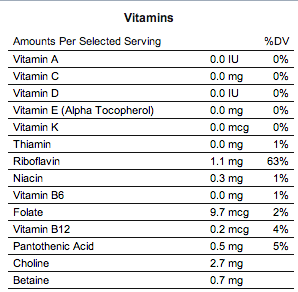
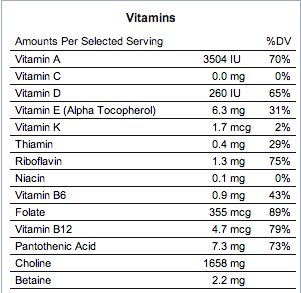 Almost all the vitamins are in the yolk
Almost all the vitamins are in the yolk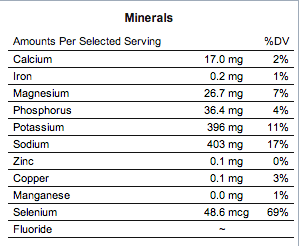
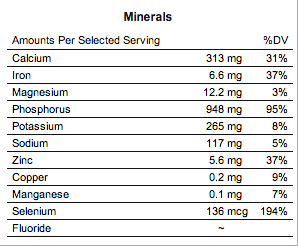 The yolk has more minerals
The yolk has more minerals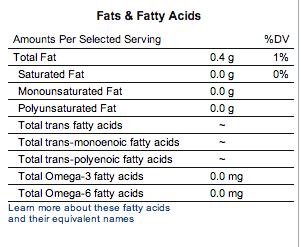
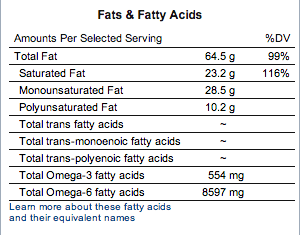 Almost all the fat and cholesterol is in the yolk.
Almost all the fat and cholesterol is in the yolk.
Egg WhitesCholesterol: 0 mg (0%)Protein: 26 gSource: http://nutritiondata.self.com/facts/dairy-and-egg-products/112/2
Egg YolksCholesterol: 2998 mg (999%)Protein: 29 gSource: http://nutritiondata.self.com/facts/dairy-and-egg-products/113/2
Conclusion:
Yolks have most of the vitamins and minerals, including Vitamins A, D, E, K, B6, B12, Thiamin, Riboflavin, Folate, Choline, Calcium, Iron, Phosphorus, Zinc, and Selenium.
Both have similar amounts of protein. Yolks have all the cholesterol and fat.

Does high cholesterol in food (like egg yolks) raise blood cholesterol?
Okay, so the yolks are loaded with vitamins and minerals. But that cholesterol? Should we be concerned?
What does the ?research? show?
A prospective study of egg consumption and risk of cardiovascular disease in men and women.
http://www.ncbi.nlm.nih.gov/pubmed/10217054
?consumption of up to 1 egg per day is unlikely to have substantial overall impact on the risk of CHD or stroke among healthy men and women?
Eggs and dietary cholesterol
http://drperlmutter.com/wp-content/uploads/2013/07/eggs-are-good.pdf
?Dietary cholesterol in foods such as eggs has only a small and clinically insignificant effect on blood cholesterol, especially when compared with the much greater effects of dietary saturated fatty acids on blood cholesterol. These facts are now well established and, as a consequence, recommendations from major food and health bodies concerning dietary cholesterol have been relaxed in the UK and elsewhere in recent years?
Whole egg consumption on insulin sensitivity in individuals with metabolic syndrome
http://www.ncbi.nlm.nih.gov/pubmed/23021013
?Incorporating daily whole egg intake into a moderately carbohydrate-restricted diet provides further improvements in the atherogenic lipoprotein profile and in insulin resistance in individuals with MetS?
Whole egg intake in adults with metabolic syndrome
http://www.ncbi.nlm.nih.gov/pubmed/24079288
?on a moderate carbohydrate background diet, accompanied by weight loss, the inclusion of whole eggs improves inflammation to a greater extent than yolk-free egg substitute in those with MetS?
Eggs and Cholesterol
http://authoritynutrition.com/how-many-eggs-should-you-eat/
?The liver produces large amounts of cholesterol. When we eat a lot of eggs (high in cholesterol), the liver produces less instead?
?Many observational studies show that people who eat eggs don?t have an increased risk of heart disease, but some of the studies do show an increased risk in diabetics.?
?Eggs consistently raise HDL (the ?good?) cholesterol. For 70% of people, there is no increase in Total or LDL cholesterol. There may be a mild increase in a benign subtype of LDL in some people?
Eggs Don?t Deserve Their Bad Reputation
http://www.livescience.com/39353-eggs-dont-deserve-bad-reputation.html
?Interestingly, people in Japan ? consumers of some of the largest quantities of eggs in the world (averaging 328 eggs consumed per person per year ? have low levels of cholesterol and heart disease compared with other developed countries, especially the United States. Why? In part, it?s because the Japanese eat a diet low in saturated fat?
?The major determinant of plasma LDL level is saturated fat,?said Alice Lichtenstein, professor of nutrition science and policy at the Friedman School of Nutrition Science and Policy at Tufts University. And while eggs are high in cholesterol (186 milligrams, 184 of them in the yolk), they?re relatively low in saturated fat (1.6 grams in the yolk)
Jillian Michaels
http://www.jillianmichaels.com/fit/lose-weight/myth-eggs
?The real threat to high cholesterol is saturated and trans fats, not dietary cholesterol. Years ago, when scientists learned that high blood cholesterol was associated with heart disease, foods high in cholesterol were thought to be the leading cause of unhealthy blood cholesterol. Now, 25 years later, scientists have come to the conclusion that cholesterol in food is not the true villain ? saturated and trans fats have a much greater effect on blood cholesterol.?
?In fact, one study at the University of Connecticut found that the fat in egg yolks actually helps to reduce LDL (?bad? cholesterol). So banish the old notion that an egg, specifically the yolk, is hazardous to your health.?
Dietary cholesterol provided by eggs
http://www.ncbi.nlm.nih.gov/pubmed/16340654
?The lack of connection between heart disease and egg intake could partially be explained by the fact that dietary cholesterol increases the concentrations of both circulating LDL and high-density lipoprotein (HDL) cholesterol in those individuals who experience an increase in plasma cholesterol following egg consumption (hyperresponders). It is also important to note that 70% of the population experiences a mild increase or no alterations in plasma cholesterol concentrations when challenged with high amounts of dietary cholesterol (hypo responders)?
Egg consumption and risk of coronary heart disease and stroke: dose-response meta-analysis of prospective cohort studies
http://www.bmj.com/content/346/bmj.e8539
?results from our meta-analysis do not support that higher egg consumption is associated with elevated risk of coronary heart disease and stroke?
Egg consumption and risk of cardiovascular diseases and diabetes: a meta-analysis
http://www.ncbi.nlm.nih.gov/pubmed/23643053
?Our study suggests that there is a dose-response positive association between egg consumption and the risk of CVD and diabetes?
Egg consumption in relation to cardiovascular disease and mortality: the Physicians? Health Study
http://ajcn.nutrition.org/content/87/4/964.long
?data from the Framingham study showed no association between egg consumption (~6 eggs/week) and CAD among 912 men and women after 16 y of follow-up?
?However, among male physicians with diabetes, any egg consumption is associated with a greater risk of all-cause mortality?
Conclusion:
Most reports claim that dietary cholesterol has an insignificant effect on blood cholesterol.
Some sources, however, claim that saturated fat intake may impact blood cholesterol.

Does eating saturated fat increase blood cholesterol?
http://www.ncbi.nlm.nih.gov/pubmed/20071648
Meta-analysis of studies evaluating the relationship between saturated fat and cardiovascular disease (included 347,747 subjects in 21 studies)
Conclusion from the study: A meta-analysis of prospective epidemiologic studies showed that there is no significant evidence for concluding that dietary saturated fat is associated with an increased risk of CHD or CVD.
http://www.ncbi.nlm.nih.gov/pmc/articles/PMC2123482
99 men, ?no closer association is evident between what these men ate and their individual cholesterol levels?
http://ajcn.nutrition.org/content/29/12/1384.long
?this large survey of daily diets among 957 men and 1082 women in a general population suggests that serum cholesterol and triglyceride levels are independent of any dietary constituent. Neither quantity or quality of fats, carbohydrates, or proteins consumed was significantly related to cholesterol or triglyceride levels?
http://www.nejm.org/doi/full/10.1056/NEJM198101083040201
?The results support the conclusion that lipid composition of the diet affects serum cholesterol concentration and risk of coronary death in middle-aged American men?
Framingham Heart Study
?in Framingham, Mass, the more saturated fat one ate, the more cholesterol one ate, the more calories one ate, the lower the person?s serum cholesterol? by William Castelli (director of the study)
http://www.proteinpower.com/drmike/cardiovascular-disease/framingham-flip-flop/
better indicator of heart risk is hdl/cholesterol and hdl/ldl
?What drives HDL up? A few things. Exercise. Alcohol in moderation. And?drum roll, please?fat in the diet, particularly saturated fat?
http://www.atkinsexposed.org/atkins/196/Atkins_Corporation_Mislabels_and_Misleads.htm
?over a dozen diet trials in the history of medicine which took people off the high fat diet lowered their cholesterols and 4?5 years out they lowered their heart attack rate?
Conclusion:
Inconclusive.
There are too many conflicting studies and reports regarding saturated fat and blood cholesterol. For almost every study I found, there was conflicting analysis of its results. Often the studies were discredited for being too short, too small, using poor measurement techniques, or misrepresenting the data.
After reading through a handful of studies and their analyses from both sides, I can?t confidently conclude that saturated fat either impacts or does not impact blood cholesterol.
I would need to spend a lot more time digging into the specifics of these studies.

How many eggs are safe to eat?
Fox News (http://www.foxnews.com/health/2013/09/11/eggs-with-yolk-are-good-or-bad-for-your-health/)
?Of course, all fat must be consumed in moderation, which is why many dieticians recommend eating only a few egg yolks each week?
http://drperlmutter.com/wp-content/uploads/2013/07/eggs-are-good.pdf
?Most health and heart advisory bodies in the UK, Europe and elsewhere no longer set limits on the number of eggs people should eat, provided they are consumed as part of a healthy diet that is not high in SFA?
http://www.huffingtonpost.com/2013/03/30/health-benefits-of-eggs-yolks_n_2966554.html
?eggs are considered the ?gold standard? for protein quality because their amino acids are the most digestible to humans.?
?But even though egg yolks are certainly a health food, they haven?t been cleared for unlimited consumption: Mayo Clinic recommends consuming no more than four eggs per week, which is the amount they found to be healthy in adults.?
http://www.tandfonline.com/doi/abs/10.1080/07315724.2004.10719429#.U-KIA4BdWrh
?The most recent American Heart Association guidelines no longer include a recommendation to limit egg consumption, but recommend the adoption of eating practices associated with good health. Based on the epidemiologic evidence, there is no reason to think that such a healthy eating pattern could not include eggs.?
http://ajcn.nutrition.org/content/87/4/964.long
?the consumption of ?6 eggs/wk has no major effect on the risk of CVD and mortality and that the consumption of ?7 eggs/wk is associated with a modestly greater risk of total mortality in US male physicians?
http://www.nejm.org/doi/full/10.1056/NEJM199103283241306
88-year old man who ate 25 eggs/day for ~15 years
he experienced no heart issues and had normal cholesterol levels
?His almost complete freedom from clinically important atherosclerosis and its complications may be explained in part by a great reduction in the efficiency of cholesterol absorption from the intestine and by a marked increase in the conversion of cholesterol to bile acids. In addition, his cholesterol synthesis was probably reduced moderately, and his biliary cholesterol secretion may have been increased. These physiologic adaptations would leave little if any of the dietary cholesterol to elevate plasma cholesterol levels and be deposited in arterial walls?
Observational reports of eating >7 eggs/week
http://paleohacks.com/questions/133831/is-it-ok-to-eat-4-eggs-a-day.html
http://forum.bulletproofexec.com/index.php?/topic/4907-how-many-eggs/
http://caloriecount.about.com/forums/foods/eating-eggs-bad
Conclusion:
3?6 yolks/week is recommended, but higher quantities are observationally reported without any concerns.
Most reports suggest 3?6 yolks per week. However, they don?t provide references or studies that suggest why consuming more is unsafe. Observationally, people have reported eating more than this (including one guy who ate 25 eggs/day for 15 years) and showed no cause for concern.

My Cholesterol Over Time
General diet was high-fat: eggs, bulletproof coffee, paleo-esque.

Conclusion:
As long as you frequently monitor your cholesterol levels, there is no reason to avoid eating 4 eggs a day.
If your levels change drastically*, then adjust as needed. Otherwise, there is no known risk**.
* ratios are a better indicator of heart disease than totals, and LDL-P may be the best indicator according to this source.
** there are studies showing increased risk for diabetics, so diabetics should be more cautious when eating that many eggs.

What?s the best way to lower cholesterol?
http://www.ncbi.nlm.nih.gov/pubmed/22795291
?Independent of diet, exercise had beneficial effects on low-density lipoprotein cholesterol particle number, low-density lipoprotein cholesterol size, high-density lipoprotein cholesterol, high-density lipoprotein cholesterol size, and triglycerides?
http://www.ncbi.nlm.nih.gov/pmc/articles/PMC3011978/
?Short sleep duration (<6 hours) is associated with increased risk of diabetes and hypertension in adults?
?Long sleep duration (>8 hours) has also been associated with increased obesity, diabetes and hypertension in some studies?
http://circoutcomes.ahajournals.org/content/5/6/750.full?sid=5bfb47bc-ce6d-4800-9693-2721f911c08c
study of 201 men and women, half put on meditation program and half given health education
?significantly reduced risk for mortality, myocardial infarction, and stroke in coronary heart disease patients. These changes were associated with lower blood pressure and psychosocial stress factors?
http://www.ncbi.nlm.nih.gov/pubmed/21928900
?the cumulative effect of daily stressors promotes elevations in inflammatory markers?
http://my.chriskresser.com/wp-content/uploads/membership-files/ebooks/Diet%20Heart%20Myth.pdf
fruits and vegetables, as well as organ meats, meats, eggs, and grass-fed dairy
avoid processed foods and sugars
mono-unsaturated fat
polyphenol-rich foods: tea, especially green tea; blueberries; extra-virgin olive oil; red wine; citrus fruits; hibiscus tea; dark chocolate; coffee; turmeric; and other herbs and spices
http://www.ncbi.nlm.nih.gov/pubmed/22331685
?Nut/tree nut consumption was associated with a decreased prevalence of selected risk factors for cardiovascular disease, type 2 diabetes, and MetS?
http://www.ncbi.nlm.nih.gov/pubmed/11122711
?So far, five large prospective cohort studies (the Adventist Health Study, the Iowa Women Health Study, the Nurses? Health Study, the Physicians? Health Study, and the CARE Study) have examined the relation between nut consumption and the risk of CHD and all have found an inverse association. In addition, several clinical studies have observed beneficial effects of diets high in nuts (including walnuts, peanuts, almonds, and other nuts) on blood lipids?
http://www.ncbi.nlm.nih.gov/pmc/articles/PMC3576907/
very small (10 person) study, definitely not conclusive, but interesting enough to note: 2 hours of grounding (physical contact with the earth?s surface) correlated with decreased blood viscosity (which is correlated with blood cholesterol). This generates an interesting hypothesis that contact with the earth may impact blood cholesterol. Way more research is needed on this topic though.
http://www.nlm.nih.gov/medlineplus/druginfo/natural/993.html
?Now researchers believe that fish oil can reduce triglyceride levels by 20% to 50%.?
http://articles.mercola.com/sites/articles/archive/2014/04/14/vitamin-d-cholesterol-levels.aspx
THIS IS JUST A THEORY (I didn?t see any other reports suggesting it)
lack of sun exposure can cause cholesterol sulfate deficiency. The body compensates for this deficiency by using damaged LDL for plaque that produces cholesterol sulfate.
High fructose consumption ? over-taxed liver ? impaired cholesterol formation ? cholesterol deficiency ? plaque formation to compensate for cholesterol sulfate deficiency ? cardiovascular disease
Appropriate sun exposure + low-sugar diet = optimal cholesterol production in your liver + optimal cholesterol sulfate production in your skin ? healthy cholesterol levels and absence of arterial plaque
http://articles.mercola.com/sites/articles/archive/2013/05/11/statin-nation.aspx
reasons to avoid statins (article lists numerous studies within it)
Conclusion:
Eat a diet rich in veggies, fruits, mono-unsaturated fat, nuts, and polyphenol-rich foods. Exercise. Get enough sleep (but not excessive sleep). Supplement with fish oil. Meditate.
Alternative health circles also recommend grounding, sun exposure, and avoidance of high fructose consumption.



![[FOOTBALL/@^GAME]@@Patriots vs Panthers NFL Live Stream Reddit for Preseason Week 3](https://911weknow.com/wp-content/themes/mts_myblog/images/nothumb-myblog-related.png)